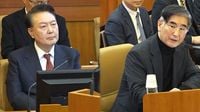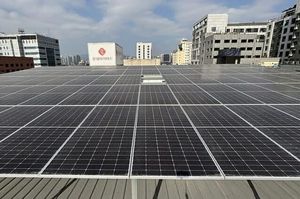On April 4, 2025, the Constitutional Court of South Korea delivered a pivotal ruling in the impeachment trial of former President Yoon Suk-yeol, acknowledging significant evidence that implicated him in attempts to control the legislative process. This decision was largely influenced by the testimony of Kim Yong-hyun, the former Minister of National Defense, who appeared as the first witness in the trial.
During the hearing, Kim's statements initially appeared to favor Yoon, yet they inadvertently provided critical grounds for the court's decision to uphold the impeachment request. The court found that Yoon had mobilized military forces to restrict access to the National Assembly for its members, thereby obstructing their legitimate activities.
Specifically, the court noted that Kim had directed the Defense Security Support Command to verify the locations of 14 key figures, including the Speaker of the National Assembly and leaders of various political parties, ostensibly for potential arrest. This revelation was crucial in forming the basis of the court's ruling.
"The impeached person mobilized troops to control the entry and exit of National Assembly members and hindered the National Assembly's legitimate activities by inciting some people," the court stated in its findings.
Kim's testimony, given during the fourth hearing of the impeachment trial on January 23, 2025, was scrutinized by presiding Judge Jeong. The judge questioned Kim's earlier claims regarding the purpose of identifying key personnel, asking, "Wasn't it that you said that if you tracked down accomplices and there was a risk of violating regulations, you would have to arrest them?" Initially, Kim denied the existence of an arrest plan. However, when pressed further, he conceded that if movements were confirmed and violations were anticipated, preventive measures would be necessary, potentially leading to arrests.
This acknowledgment indicated a willingness to consider arrests of key figures under certain conditions, thus reinforcing the court's recognition of the impeachment's factual basis.
The court also found it difficult to accept Yoon's claims that he had not issued any instructions related to the so-called 'arrest list.' Yoon had previously stated that his discussions with Hong Jang-won, the former Deputy Director of the National Intelligence Service, were intended to ensure proper oversight of the National Intelligence Director and to support security operations unrelated to espionage.
However, the court highlighted that Yoon had instructed Hong to "wait because he doesn't know if there will be anything to call about after about an hour" during their first call, which took place shortly after the declaration of martial law. This, along with the fact that Yoon met with National Security Director Cho just before the martial law declaration and spoke with him after the fifth call with Hong, suggested that Yoon's intentions were indeed linked to the operational duties of the Defense Security Support Command in the context of the martial law situation.
Furthermore, the court stated that Kim's directives could not be seen as disconnected from Yoon's intentions. Kim's testimony was also instrumental in assessing the constitutionality and legality of the martial law declaration, referred to as 'Pohang No. 1.' While Yoon's defense team acknowledged some potential legal issues with this declaration, they argued it was merely a symbolic measure without any actual intent to implement it.
Nevertheless, the court found this argument unconvincing, citing Kim's assertion that he believed the declaration had legal effect and should be executed. During cross-examination, when asked if there was any intention to enforce the declaration, Kim replied, "Of course, that would be the right thing to do."
As the trial unfolded, it became clear that Kim's testimony not only provided a narrative that aligned with the impeachment charges but also raised serious questions about the actions taken by Yoon during his presidency. The implications of the court's ruling extend beyond the immediate political landscape, as they highlight the delicate balance of power between the executive and legislative branches in South Korea.
The Constitutional Court's decision to uphold the impeachment request is set to take effect immediately upon the reading of the order by the presiding judge. This ruling could lead to Yoon's removal from office or his reinstatement, depending on the final decision rendered by the court.
As the nation awaits the outcome, the implications of this trial resonate deeply within the political fabric of South Korea, raising questions about governance, accountability, and the rule of law.
In a nation where political tensions often run high, the unfolding events serve as a reminder of the critical role that judicial oversight plays in maintaining democratic principles.




